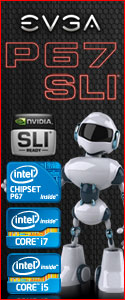As is customary here at Overclockers Tech, we like to run the full battery of tests provided by AIDA64 Extreme. For a detailed description of what the AIDA64 Extreme benchmarks are actually testing, I invite you to visit their website to learn more.
First up is the suite of memory tests, which include read, write, copy, and latency. None of the comparison systems built into AIDA64 are overclocked or use memory running at 2400 MHz like we are. However, we wanted you to see the results based on our 4.6 GHZ overclock and our memory speed of 2400 MHz. The reasoning behind this is we feel a similar overclock is obtainable by just about everyone, even with a good air cooling solution. Additionally, as memory continues to get faster and more affordable, chances are the majority of users purchasing this motherboard will be using higher end memory as well.
The memory scores below really show the advantages of having a 2400 MHz kit installed. Even the comparison systems that are using triple and quad channel memory fell way behind here.
 |
 |
 |
 |
The five CPU tests were run next and show some great scores. Our system came out on top of every other quad core on the comparison chart, only being bested by the X79 CPUs and their 6 cores. The CPU hash test showed a 12X Opteron taking the lead.
 |
 |
 |
 |
 |
|
The FPU tests are the last set of AIDA64 benchmarks to be run. The Julia test measures 32-Bit floating-point performance, and our system came out just below the six core i7-3960X. The same held true for the Mandel test as well, which measures the 64-Bit floating-point performance. The 80-Bit floating-point Sinjulia test shows our system leading the way against all other quad core systems, but fell behind six and eight core systems. Finally, the video compression test shows our system coming out on top, even besting six core competitors.
 |
 |
 |
 |
There are three SATA controller options available on the Z77 FTW, which make up the eight SATA ports. The three options include the two native Intel SATA 6 GB/s ports, the four native Intel SATA 3 GB/s ports, and two third party Marvell SATA 6 GB/s ports.
Using ASSSD and a 240 Gb Kingston 3KSSD, I ran the read and write benchmark portion to give you an idea of the performance level each has to offer. As expected, the Intel SATA 6 GB/s controller led the pack and out performed the Marvell 6 GB/s controller by 11% in both the read and write test.
The USB controllers on the Z77 FTW also come in three flavors; Intel native USB 3.0, Intel native USB 2.0, and ASMedia USB 3.0 for the front panel connection. Using an ADATA USB 3.0 thumb drive, I again ran the ASSD read and write tests. I was happy to see the same results from both the Intel and ASMedia USB 3.0 controllers. As expected the USB 2.0 controller was much slower, especially on the read side of things.



 Posted in
Posted in 





